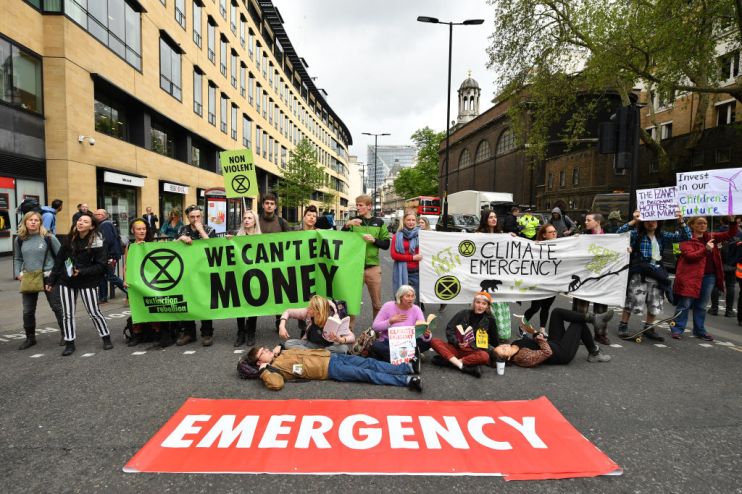DEBATE: In light of the Barclays protests, are climate activists right to target financial institutions?

In light of the Barclays protests, are climate activists right to target financial institutions?
Adrienne Buller, economist and research fellow at the Common Wealth think tank, says YES.
Last week, a leaked JP Morgan report acknowledged that, in a world of accelerating temperature rise, “we cannot rule out catastrophic outcomes where human life as we know it is threatened”.
While JP Morgan is right to recognise the scale of the crisis, there is an irony in the bank being the world’s foremost lender to fossil fuel projects.
This reflects a broader trend. Just 33 banks have funnelled $1.9 trillion into fossil fuel projects since 2016. In doing so, they continue to fan the flames of climate crisis, supporting projects and assets that, if the world is to meet the goal of limiting warming to below 2 degrees celsius, will necessarily be “stranded” — in other words, valueless.
Banks have a vital role to play in financing a just transition, which will require an immense mobilisation of resources to invest in decarbonisation and the green industries of the future.
As they are yet to make this shift on their own, campaigners are right hold them to account and demand that they invest in a liveable future.
Carum Basra, corporate governance policy adviser at the Institute of Directors, says NO
The climate protesters may be fighting the good fight, but they risk focusing on yesterday’s battle.
When the head of the world’s biggest asset manager is writing that climate change is a “defining factor” for companies’ long-term prospects, it’s no longer a question of “if” financial institutions will take action. The question now is “how”.
It’s time for activists to put down their placards and enter this dialogue constructively. To truly influence financial institutions, they should learn to “speak money”, and join the conversation which banks are already having on issues like stranded assets and the implementation of new rules around climate-related disclosures.
Simply confronting the operations of financial institutions won’t achieve much in terms of their behaviour, and could alienate their customers.
On the specific issue of divestment, a cliff-edge is not the right approach. Carbon-intensive industries will need patient capital to allow them to transition effectively, and banks have a crucial role to play in that journey.
Main image credit: Getty